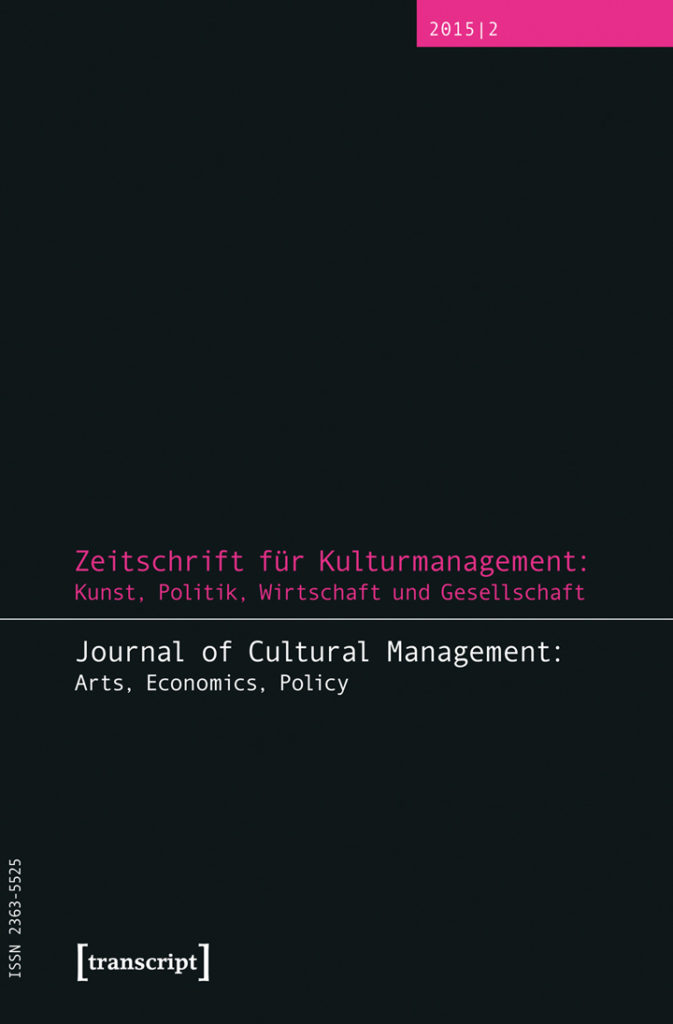Research Article
Das ‚hohe Kulturgut deutscher Musik‘ und das ‚Entartete‘
Über die Problematik des Kulturorchester-Begriffs
Abstract
In Germany there is a long tradition of public funding of musical culture. Further support is given by collective agreements for the members of symphony orchestras. In larger cities, municipal funds for music promotion are mainly used for those orchestras who emphasize the performance of major orchestral works of the 19th century. The existential security of other artists plays a minor role in the concept of cultural policy, for example, musicians who specialize in a wide range of earlier musical eras or are focused on the musical diversity of the 20th/21st century, including jazz. An important historical milestone for the development of the German cultural profile was the establishment of the ‘Kulturorchestersystem’, which has been continually expanded since 1938.
In this paper the history of the expression ‘Kulturorchester’ is outlined. The term implies the former concept of culture, especially the ideological beliefs of Peter Raabe, who was President of the Nazi institution ‘Reichsmusikkammer’. In Raabe’s tenure this term was raised to a legal concept. Given these historical findings, the study concludes that the use of the legal Nazi term ‘Kulturorchester’ is no longer acceptable. The analysis leads inevitably to the question of why after 1945 the policy has failed to enforce a fundamental course correction in the distribution of public funds for the development of musical diversity.
Keywords
2015 (2)
Art, Economics, Policy

Related Articles
Planning Creative Cities: Reflections on a Trend
Journal of Arts Management and Cultural Policy 2020 (1)
Essay
Journal of Cultural Management 2018 (2)
Research Article
Learning from Bayreuth
Richard Wagner als KulturmanagerYearbook for Culture Management 2013
Research Article
Intangible Cultural Heritage, Sustainable Development, and the Integrating Role of Music
Journal of Cultural Management and Cultural Policy
Research Article
Missing the Audience
Online Musicking in Times of COVID-19Journal of Cutural Management and Cultural Policy
Case Study
Journal of Cultural Management and Cultural Policy 2024 Journal of Arts Management and Cultural Policy 2020 (1)
Case Study
© 2026, Journal of Cultural Management and Cultural Policy
Keywords
- Aesthetics
- Higher Education
- Cultural Diplomacy and Foreign Cultural Policy
- Occupation
- Career and Professional Role
- Audience Development
- Audience Studies and Visitor Studies
- Visitor Motivations
- Business
- Covid Pandemic
- Democracy
- Digitalization
- Diversity
- Third Sector
- Empirical Aesthetics
- Development
- Ethics
- Evaluation
- Field Theory
- Festival
- Film
- Federalism
- Community Arts
- Societal Change
- Ideology
- Staging
- Career
- Communication
- Concert
- Creative Industries
- Creativity
- Crisis
- Culture
- arts organizations, cultural organizations
- Cultural Participation
- Cultural Change
- Fincancing The Arts
- Cultural Promotion Law
- Cultural History
- Cultural Management
- Cultural Economy
- Cultural Organizations
- Art Education
- Cultural Policy
- Cultural Production
- Cultural Sociology
- Art Education
- Cultural Understanding
- Arts Administration
- Cultural Industry
- Cultural Sciences
- Art
- Art Field
- Arts Research
- Artists
- Artistic Research
- Artistic Reputation
- Arts Management
- Arts Organizations
- Art education
- Arts Marketing
- Arts Administration
- Curating
- Leadership
- Literature
- Advocacy
- Management
- Marketing
- Market
- Media
- Methods Development
- Mexico
- Monumentalizing
- Museum
- Music
- Non-Visitor Studies
- Opera
- Orchestra
- Organization
- Political Expression
- Post-truth Politics
- Professional Role
- Audience
- Audience Development
- Law
- Government
- Role
- Socially Engaged Art
- Social Cohesion
- Social Change
- Social Cohesion
- Non-visitor Socio-demographics
- Socioculture
- State
- Symbolic capital
- Dance
- Participatory Justice
- Theatre
- Theatre Governance
- Theory Development
- Tourism
- Transformation
- Survey
- Entrepreneurship
- Urbanism
- Civil Society


